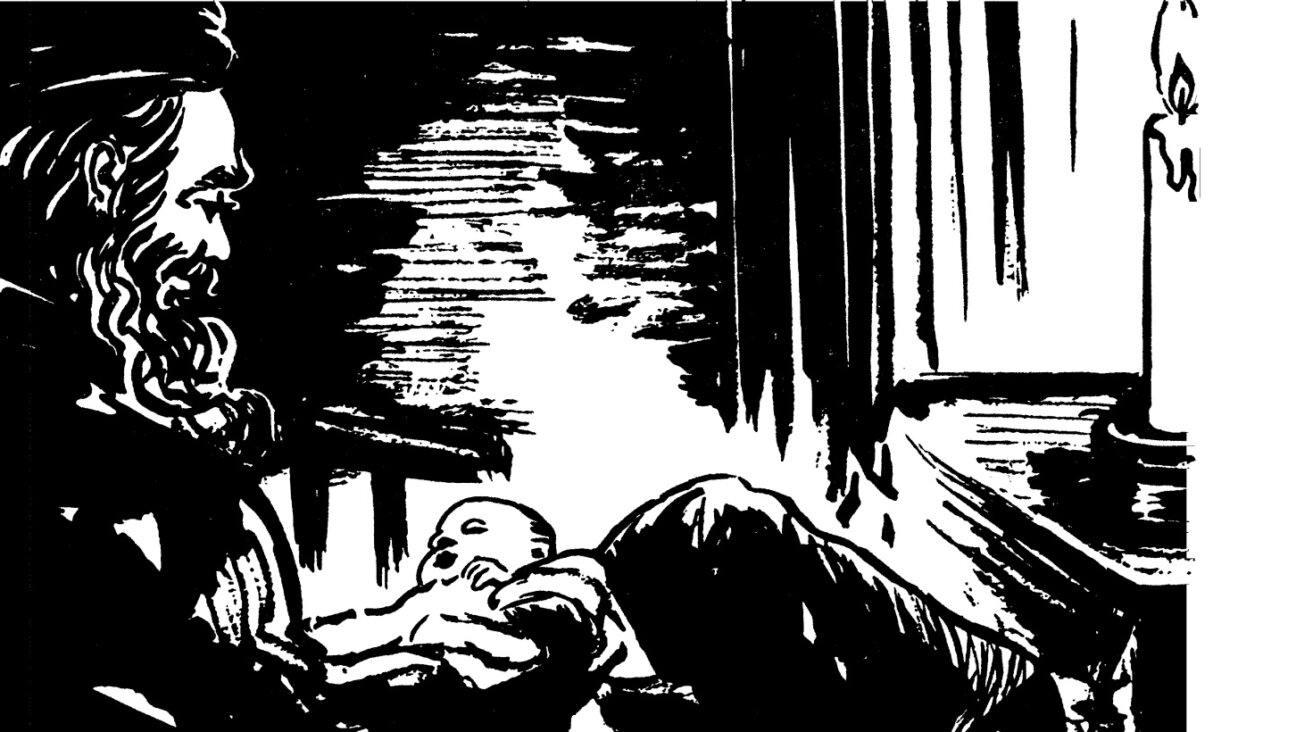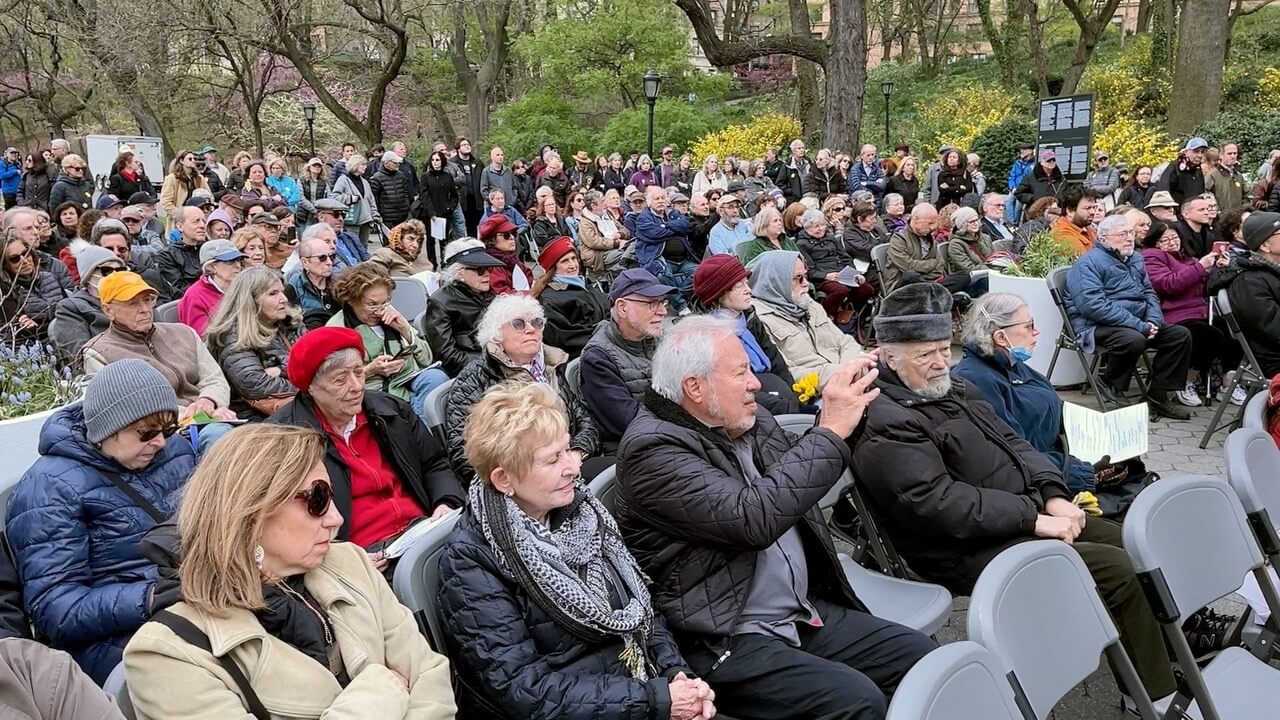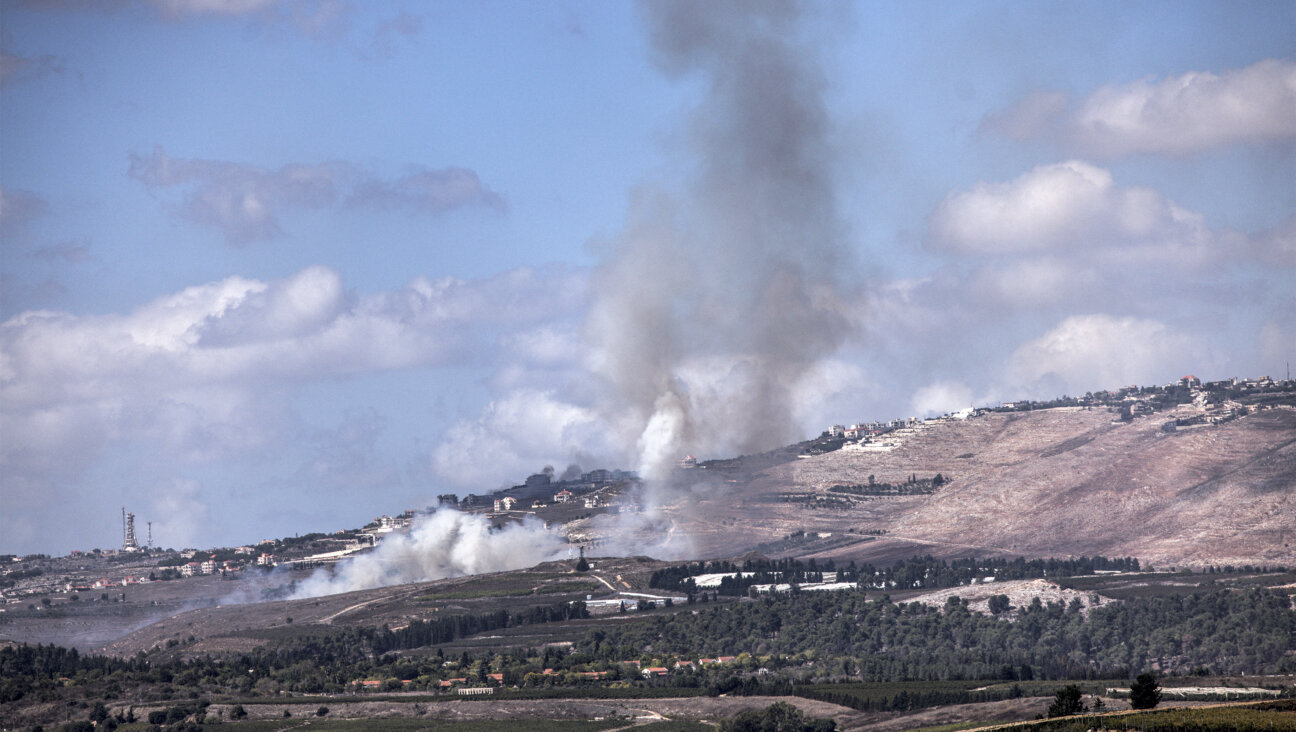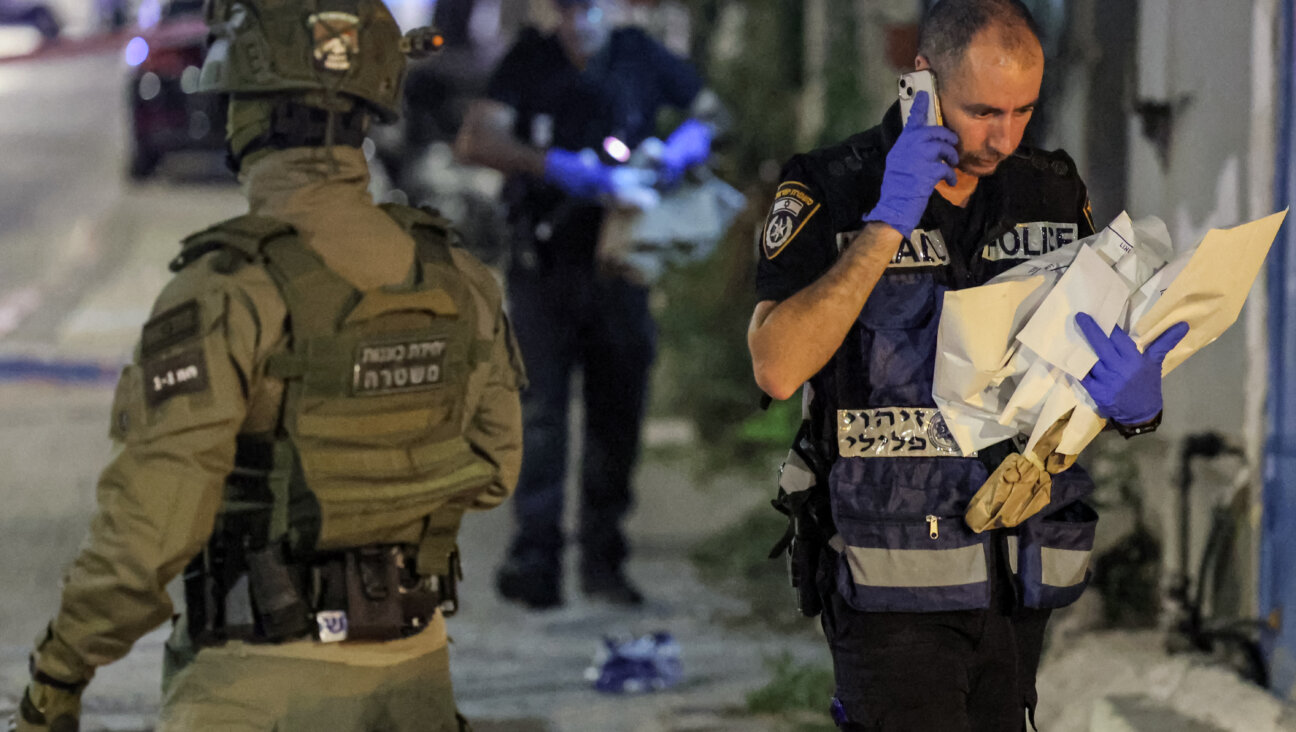How can Jews committed to Yiddish culture call a massacre of Jews ‘resistance’?

Relatives and friends of people killed on October 7th cry during the National ceremony commemorating the first anniversary since the attacks, at Park Hayarkon on October 07, 2024 in Tel Aviv, Israel Photo by Photo by Alexi J. Rosenfeld/Getty Images)
The article “A painful split in the Yiddishist community since Oct. 7” by Rukhl Schaechter mentions the queer Yiddish theater collective, GLYK, which has aligned itself “with Palestinians resisting nearly 12 months of rapidly escalating genocide following over a century of settler colonial violence and ethnic cleansing.”
As a second generation Bundist, I identify with and appreciate the humanist sentiments, but as an Israeli, I see GLYK’s pro-Palestinian alignment as completely misguided.
GLYK’s unfortunate statement is correct only about the duration of the war in Gaza, which, it must be remembered, began with the Hamas attack on Israel, which included rape, torture, children murdered in front of their parents, parents in front of their children, burning, beheading, and kidnapping.
That a Yiddish theater collective celebrating a language that barely survived its enemies can frame a massacre of Jews as “resistance” and glorify its perpetrators is deeply disturbing. Even understanding the motivations behind the attack doesn’t justify making this atrocity the core of a pro-Palestinian cause or calling Israel’s military response a genocide.
The term ‘genocide’has become a catch-all phrase
The term ‘genocide’ has lost clarity, becoming a catch-all phrase that not only means the intentional extermination of an entire people like the Nazis’ Final Solution, but also displacing an enemy population in a war zone in order to save their lives. The word’s meaning has become so broad that it’s difficult to argue against.
But Israel’s actions in Gaza, aimed at sparing civilians the devastation of our impending bombing while fighting Hamas, were far from genocidal. Since Israel is at war with Hamas, however, and since Hamas embeds itself and its armaments among the Gazans in their homes, schools, hospitals, and tunnels stretching throughout Gaza, the IDF wound up killing many civilians.
Other problematic terms used by GLYK, such as “settler colonial violence” and “ethnic cleansing,” also obscure the reality. While present-day settler violence is indeed condemnable, this does not equate to canceling all of Israel. The Jewish homeland was established to end 2,000 years of exile, and it was repeated Arab attacks, not Israeli expansionism, that led to territorial conquests. The refusal of Arab states to negotiate and the religious belief that Jews have no right to the land led to wars meant to drive Jews out.
Is this not ethnic cleansing? Where was the humanitarian decency GLYK is calling for when the Jewish people were struggling and homeless? What in the Arabs’ behavior then or now is laudable?
What would our Bundist parents have thought of this?
I am dismayed by the quiet dismay of some in the Yiddishist community about the direction of GLYK, the dispute about mentioning Oct. 7 at a Holocaust commemoration, and the anxiety some people have expressed at Yiddish events where pro-Palestinian and pro-Israel sentiments collide.
I wonder what our Bundist parents would have thought of the decision to omit any reference at this year’s Warsaw Ghetto memorial in Riverside Park to the horrific pogrom that occurred in Israel reminiscent of the massacres of Jews before and during the Holocaust. Many of our parents, who actually lived through the Holocaust, may not have been staunch supporters of Zionism, but they wished Israel only well.
Surely gearing our traditions to resonate with the next generation must remain commensurate with commemoration and with the oath to never forget what the Nazis did to our people. And what are we to make of the delicacy toward displays of solidarity with the Palestinian cause at Jewish cultural events while pro-Israel signs are viewed as provocative? Of looking at personal negative experiences with Israeli culture and language to justify rejection of Israel?
This clearly points to an excuse waiting to be found. FOMO (the fear of missing out) on the trend of pro-Palestinian activism results in these inversions and ways of thinking that threaten a frightening logical conclusion.
A ceasefire is no guarantee that Yahya Sinwar will return them
This is not the time, then, to be afraid to anger fellow members of the Yiddishist or broader Jewish community. As antisemitism and support for jihadist, undemocratic, illiberal forces rises, this isn’t the time to pussyfoot about expressing one’s position. It is the time to be on the right side of history, toward positive change, mostly recently heralded by the elimination of Hassan Nasrallah and the weakening of Hezbollah. Supporting that change will validate progressive values.
That is why criticizing YIVO’s series on the origins and ideology of Hamas as biased is wrong. As an institute for Jewish research, YIVO’s responsibility is to share information about documented Nazi-Islamist collaboration and draw the appropriate parallels. Instead of seeking balance where there can be none, offering testimony in support of Israel should be praised, not condemned.
The pro-Palestinian call for an immediate ceasefire at best ignores that a ceasefire is a complicated military and political affair. It can’t be motivated by empathy for the Gazans alone. For those pro-Palestinians who also care about the 101 remaining hostages, a ceasefire is no guarantee that Oct. 7 mastermind Yahya Sinwar will return them. It is more likely to cause a not-too-distant return to Oct. 7, as Sinwar himself has promised.
In any event, the return of our hostages cannot be the sole aim of the war in Gaza. In Israel, we don’t talk about an existential threat in air quotes. The abduction was a Hamas tactic toward its larger goal: to carry out, together with the Iranian proxies, and now Iran itself, the genocidal pledge of the Hamas founding charter to ethnically cleanse the land from the river to the sea of Jews.
The views and opinions expressed in this article are the author’s own and do not necessarily reflect those of the Forward.
A message from our CEO & publisher Rachel Fishman Feddersen

I hope you appreciated this article. Before you move on, I wanted to ask you to support the Forward’s award-winning journalism during our High Holiday Monthly Donor Drive.
If you’ve turned to the Forward in the past 12 months to better understand the world around you, we hope you will support us with a gift now. Your support has a direct impact, giving us the resources we need to report from Israel and around the U.S., across college campuses, and wherever there is news of importance to American Jews.
Make a monthly or one-time gift and support Jewish journalism throughout 5785. The first six months of your monthly gift will be matched for twice the investment in independent Jewish journalism.
— Rukhl Schaechter, Yiddish Editor























